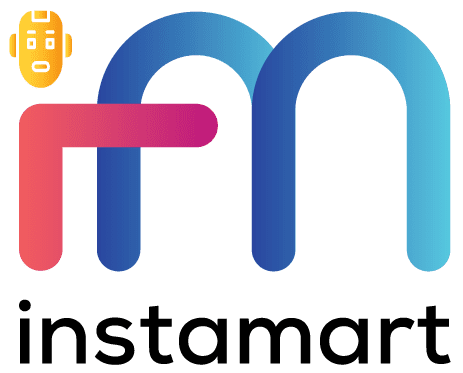Some of those who may need our assistance today in crossing the street had more power on their arms than we currently do. They traversed the dusty places of Iraq and hid in the dark holes of Ukraine. In one way or another, fate in their places of work took away what made them complete men and women and it’s time artificial intelligence restored it. Even those born with the need for assistive technology need to afford a smile to feel part of the communities they live. This is the hope that AI has brought to support people living with disabilities.
Artificial intelligence has revolutionized various industries, and customer service is no exception. AI-powered solutions have ensured efficient and personalized interactions between businesses and consumers. One crucial aspect that has gained significant attention is improving customer service accessibility for individuals with disabilities. By leveraging the potential of Artificial Intelligence, companies can create a more inclusive and accommodating customer experience.
Artificial Intelligence Enhancements In Customer Service
- Natural Language Processing
In customer service, NLP enables automated systems to comprehend user queries, leading to quicker and more accurate responses. For people with disabilities who may have difficulty with traditional interfaces, NLP offers a breakthrough in accessibility. Voice-activated systems and speech-to-text capabilities can cater to those with visual or mobility impairments, ensuring they receive seamless and efficient support.
One remarkable application of NLP is its integration into call centers, where voice recognition technology replaces the need for manual input, streamlining the customer support process. Additionally, chatbots with NLP capabilities provide 24/7 assistance, offering a lifeline for individuals who require immediate help regardless of the time of day.
- Virtual Assistants and Chatbots
Virtual assistants and chatbots are becoming increasingly prevalent in customer service interactions. These AI-driven entities simulate human-like conversations, offering personalized and contextually relevant responses to customer inquiries. For people with disabilities, virtual assistants present a game-changing opportunity to access customer support independently.
By eliminating the need for visually demanding interfaces, virtual assistants enable visually impaired users to navigate through complex processes with ease. Moreover, individuals with speech impediments can communicate more comfortably with chatbots, as they are not subject to potential human biases or judgment.
Prominent companies have already adopted virtual assistants to improve accessibility. For instance, an airline deployed a chatbot with Artificial intelligence capabilities that assist travelers with disabilities in booking accessible seats and requesting specific accommodations, ensuring a more inclusive travel experience.
- Adaptive User Interfaces
AI-driven adaptive user interfaces (UIs) adapt and customize the presentation of information based on the user’s specific needs and preferences. In customer service, adaptive UIs cater to the diverse requirements of individuals with disabilities, making interactions more efficient and pleasant.
For people with cognitive disabilities, adaptive UIs may simplify complex navigation systems, presenting information in a clear and structured manner. Users with motor impairments benefit from interfaces that accommodate alternative input methods, such as voice commands or gesture-based interactions.
Companies like e-commerce platforms have embraced adaptive UIs to provide personalized shopping experiences for customers with disabilities. By tailoring the user interface according to individual preferences, these businesses ensure an accessible and user-friendly shopping journey for everyone.
Read Also: AI-Powered Preventive Measures Saves Lives
Artificial Intelligence-Driven Data Analytics for Personalization
- Customer Data Collection and Privacy
While AI-driven data analytics offer personalization benefits, it is crucial to address data privacy concerns, particularly for individuals with disabilities who may require additional accommodations. Companies must implement responsible data collection practices, ensuring that personal information is protected and used solely for enhancing customer service accessibility.
Adhering to data protection regulations is essential to maintaining trust with customers. Transparent communication about data usage and giving users control over their information are fundamental principles in creating an inclusive and trustworthy customer experience.
- Personalized Customer Support
Personalization through AI-driven data analytics can significantly benefit people with disabilities. Understanding each customer’s unique preferences, challenges, and requirements allows businesses to deliver tailor-made customer support.
For instance, an online marketplace can use Artificial intelligence algorithms to recommend products based on previous purchases and accessibility preferences, making it easier for customers with disabilities to discover relevant items. This level of personalized support empowers individuals to engage with brands more confidently, knowing that their needs are recognized and catered to.
- Predictive Analytics for Anticipating Needs
Predictive analytics leverages AI algorithms to anticipate customer needs and preferences. For people with disabilities, this proactive approach can lead to a more seamless and hassle-free customer service experience.
Imagine an AI-powered platform that anticipates accessibility requirements based on users’ profiles and past interactions. For instance, a streaming service might automatically enable closed captions for users who are deaf or hard of hearing or present audio descriptions for individuals with visual impairments. By predicting these needs, companies can offer a more accessible and inclusive service.
Future of Artificial Intelligence For People with Disability
AI has opened up new possibilities for enhancing customer service accessibility for people with disabilities. Through NLP, virtual assistants, adaptive UIs, and data analytics, businesses can create more inclusive and personalized experiences. However, it is essential to address challenges related to AI bias, maintain human connection, and prioritize inclusive design and user testing.
By leveraging the potential of Artificial Intelligence responsibly and ethically, companies can truly transform customer service, making it accessible and welcoming for individuals with disabilities. As we look ahead, continued collaboration and innovation in the Artificial intelligence space will lead to even greater strides in improving customer service accessibility for all.






